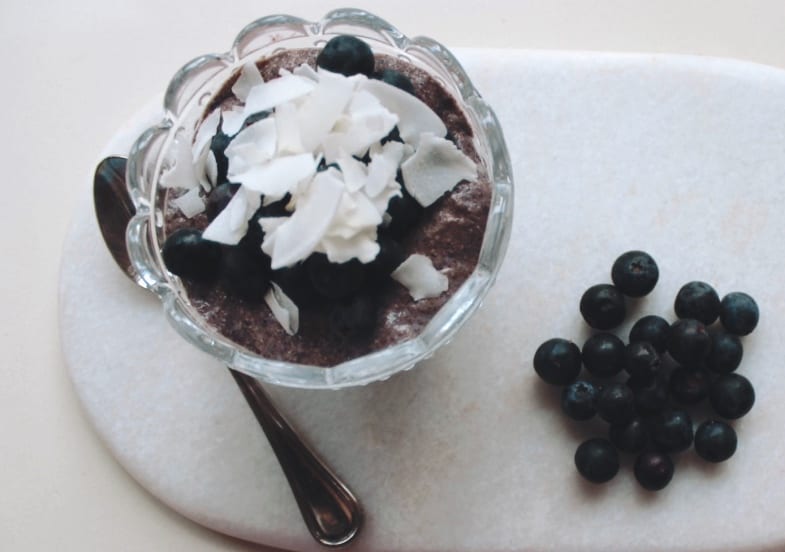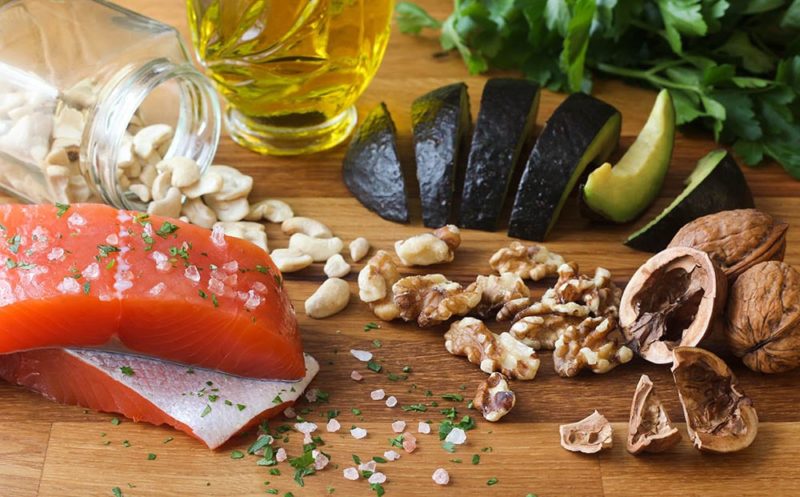Nutritionist, Amanda Ford, explains Omega-3’s key role in your child’s development and health.
If you’ve ever wondered how you can support your child’s brain development, helping them can be as easy as adding one missing ingredient: Omega-3.
The Importance Omega-3
Omega-3 is an essential fatty acid that’s very important to our kids’ diets, but often they don’t get enough of it. It’s “essential” because Essential Fatty Acids can only be obtained through our diet, yet our bodies require them for proper growth and development.
Omega-3s are vital for our kids’ brain health due to actions of the fatty acids eicosapentaenoic acid (EPA) and docosahexaenoic acid (DHA). As well as the brain, these acids are important to central nervous system function — together, all the areas that control our children’s learning, attention, speech, behaviour, mood and sleep!
Children rely heavily on Omega-3 essential fatty acids for visual, brain and immune system development, and for normal emotional and cognitive function, from when they are prenatal babies to adolescence. Much of this has to do with the rapid growth of the brain in childhood. However, recent research shows that only 22% of children get adequate amounts of these essential fatty acids.¹
mega-3 and Brain Development
As Omega-3 essential fatty acids are particularly concentrated in the brain and nervous system, not having enough of them can lead to reduced brain and neural development. In kids, this often presents as learning disorders, attention deficits, poor focus and memory, as well as reduced immune resilience and poor eye/sight development.
In fact, Omega-3 essential fatty acids are showing benefits in children with ADHD: Research is showing supplementation for these children in the form of fish oil is reducing their ADHD-related symptoms, with no adverse reactions or risks.²
Studies have also interestingly shown that kids with ADHD have lower concentrations of these key fatty acids in their blood compared to others.³ And with the improvements seen in their behaviour, learning and mood after taking fish oils — not only in research, but from what I’ve observed with my clients — it’s a great idea to give your child a good quality fish oil supplement if they have ADD/ADHD.
How to get more Omega-3 into your child’s diet

Whether or not your child has ADD/ADHD, all children can benefit from extra Omega-3 essential fatty acids, as they’re experiencing so much growth and development during their early years.
Foods rich in Omega-3s are:
- Oily cold water fish like salmon, mackerel, sardines and tuna
- Chia seeds
- Walnuts
- Fresh, green leafy vegetables
- Flaxseeds and flaxseed oil
- Linseeds
- Fish oils
Easy ideas:
- Add chia seeds or flaxseeds to smoothies, cereals, yoghurts, baked goods — I’ve shared my Blueberry Chia Pudding below
- Consume oily fish 2-3 times a week – salmon patties are always a hit!
- Snack on walnuts
Supplements
If your child does not eat fish at all, which is common, then taking a good quality fish oil supplement is definitely recommended to avoid any deficiencies.
However, not all kids’ fish oils and supplements are created alike! I recommend Ethical Nutrients and Nordic Naturals to my clients as they provide children with a premium, pure source of fish oil.
Recipe: Blueberry Chia Pudding

Ingredients (Serves 2)
1 cup unsweetened almond or coconut milk
½ cup frozen/fresh blueberries
3 tbsp chia seeds
1 tbsp LSA
½ tbsp coconut oil
½ tsp ground cinnamon
½ tsp vanilla extract
Method
Place all ingredients into the blender, except for the chia seeds. Blend until well combined and smooth. Pour into a bowl and whisk through the chia seeds using a fork, combining well. Serve into glasses for individual serves, or leave in the bowl, cover and leave in fridge to set overnight.
Enjoy for breakfast or as a dessert served as is or with some fresh fruit or shredded coconut on top!
If you have any additional questions about Omega-3 or your child’s development, please reach out to Amanda Ford at Zest+Zing, your child’s OT or contact us.
Amanda Ford, Nutritionist
Amanda Ford from Zest+Zing is an accredited Nutritionist who is passionate about educating her clients on the role of nutrition and how to use food as medicine. She wants everyone to be empowered to improve their health and get their zest for life back!
She has a special interest in digestive health, food intolerances and fatigue, and enjoys working with young kids. And as a passionate foodie, Amanda is well known for her practical approach to healthy eating.
Amanda practices on the Northern Beaches, and also via Skype consultations. Visit her website for more information including healthy recipes and nutrition tips!
You can also contact Amanda directly via amanda@zestandzing.com.au or 0410 799 449 for any enquiries.
¹ Meyer, B. J. (2016). Australians are not meeting the recommended intakes for Omega-3 long chain polyunsaturated fatty acids: results of an analysis from the 2011-2012 National Nutrition and Physical Activity Survey. Nutrients, 8 (3), 111-1 – 111-12.
² Richardson AJ, Puri BK. A randomized double-blind, placebo-controlled study of the effects of supplementation with highly unsaturated fatty acids on ADHD-related symptoms in children with specific learning disabilities. Prog in Neuro-Psychopharm & Bio Psychiatry 2002;26:233–239.
³ Stevens LJ, Zentall SS, Deck JL, et al. Essential fatty acid metabolism in boys with attention-deficit hyperactivity disorder. Am J Clin Nutr 1995;62:761–768.


